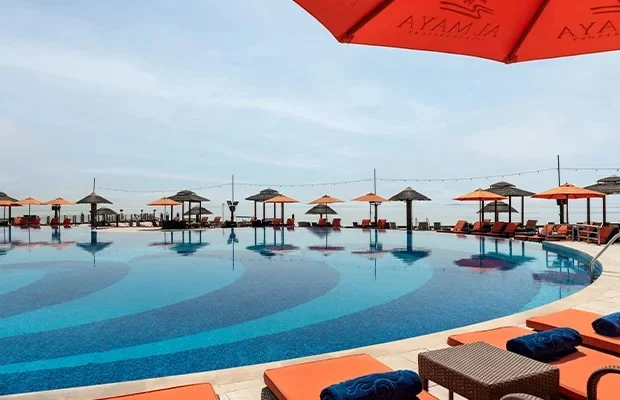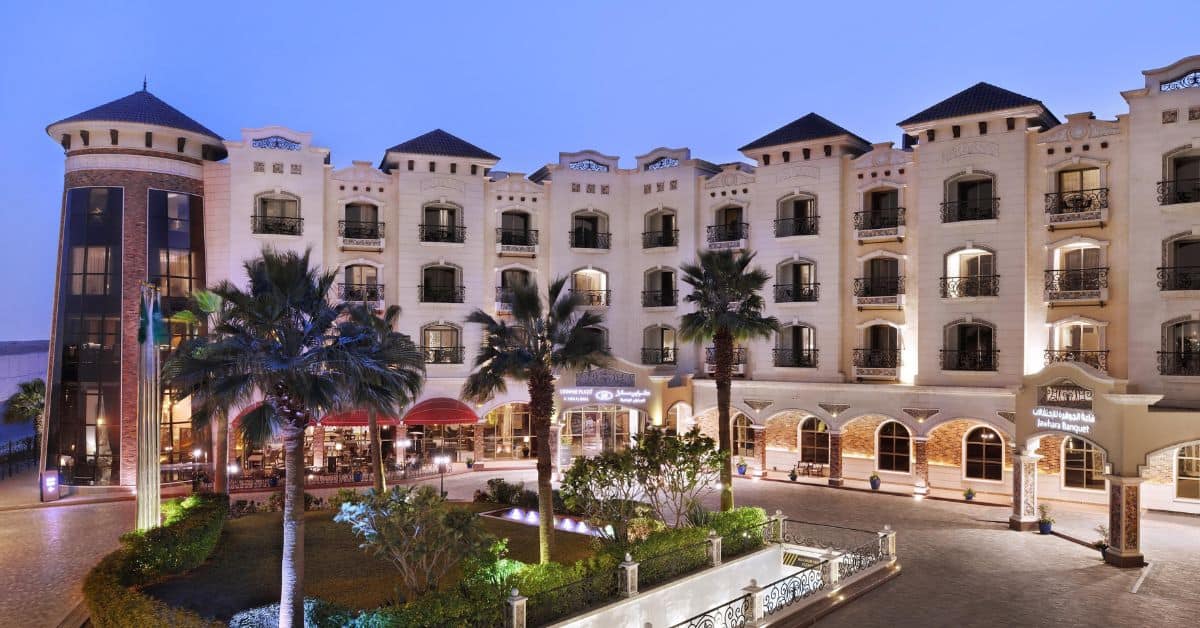The GCC’s luxury hospitality sector has become a global benchmark, yet behind every polished facade lies an increasingly complex financial reality. Costs are rising, investor expectations are shifting, and technological disruption continues to redefine both guest expectations and operational models. At the heart of this transformation is a simple but urgent question: how can hotels deliver short-term performance while future-proofing their long-term value?
For STORY Hospitality, answering this question begins with purpose. Profit is no longer the only North Star. Today, it’s about balancing purpose with performance: embedding financial discipline into operations while nurturing sustainable growth, brand equity and human capital.
That’s why we’ve adopted what we call strategic financial engineering: a hands-on, human-focused framework that treats hospitality not only as a service industry but as an asset class with evolving benchmarks.
The Numbers Behind the Narrative
Institutional investors are no longer attracted by aesthetics alone. They want operators who understand the mechanics; those who can offer visibility, stability and tangible returns. That’s why we start with weekly forecasting. It may sound operational, but it’s actually a cultural shift. It instills discipline, prompts agility and enables our teams to detect revenue gaps and course-correct in real time. This level of accountability is what today’s investment partners expect – not glossy projections, but grounded precision.
And our work often begins with turnarounds. When we acquire or take over a property, we move fast to identify two early indicators of distress: purchasing inefficiencies and cash mismanagement. These aren’t just red flags, they’re opportunities. By correcting them, we stabilize operations and lay the foundations for long-term value creation. Our goal isn’t just to increase EBITDA; it’s to build resilient, appreciating assets that perform well beyond their current ownership cycle.
Digital Tools, Human Decisions
Technology plays a central role in this model. Advanced forecasting software, guest satisfaction analytics and revenue management systems, for example, help us make faster, better decisions. But technology is never the destination, it’s the vehicle. The ultimate driver of success remains our people. They are the ones who respond to shifting guest needs, who maintain brand integrity across every touchpoint, and who embody the STORY philosophy on the ground.
What’s clear is that financial frameworks alone won’t create the hospitality brands of the future. Success requires a shift in mindset: from reactive to proactive, from transactional to transformational. The best operators will be those who combine financial rigor with emotional intelligence, and who can deliver returns without sacrificing brand purpose or employee engagement.
In markets as competitive as the UAE, that balance is everything. The future belongs to operators who can meet the moment – commercially, culturally and humanely. At STORY, we believe that a hotel’s most valuable asset isn’t just its location or its design, but the systems, values, and people behind it.

Beyond operational agility, hotels have emerged as one of the smartest strategic investment vehicles in 2025. Real estate-backed assets that offer a blend of long-term capital appreciation and recurring revenue are especially attractive in today’s market.
Institutional investors are increasingly looking toward branded residences and hybrid hospitality models – those that combine traditional room revenue with co-living or serviced apartment options – to diversify income streams while riding the crest of lifestyle trends.
And the sector’s ongoing digital transformation isn’t limited to guest-facing tech. Behind the scenes, we’re seeing rapid adoption of AI-powered platforms that assist with everything from sentiment analysis to energy efficiency. Smart building management systems, for instance, can significantly cut operational costs while supporting sustainability goals, key considerations in a region where eco-conscious travel is on the rise.
Looking ahead, we anticipate an uptick in hospitality-related M&A activity across the Middle East, with operators, asset owners and funds seeking greater consolidation to increase resilience. STORY is actively exploring growth opportunities through acquisitions that align with our values and allow us to apply our optimization framework at scale. The M&A landscape is not just about size, it’s about synergy, shared vision and brand compatibility.
And sustainability is now inseparable from financial success. Investors are increasingly asking: how green is your balance sheet? The future of hospitality will be shaped by those who can embed sustainability not just in design, but in governance, procurement and workforce culture. At STORY, our financial blueprint for sustainability includes low-carbon renovation strategies, partnerships with ethical suppliers, and an internal culture of environmental accountability.
But as the sector transforms, so too must our approach to prestige. In the age of values-driven consumers, brand prestige is no longer defined solely by star ratings or celebrity chefs. Instead, it’s about cultural relevance, social impact and transparency. Guests increasingly want to know what a hotel stands for: how it treats its staff, where it sources its ingredients, and whether its promises around sustainability hold up under scrutiny. Balancing luxury with authenticity is becoming a key marker of premium positioning, and STORY continues to evolve its brand identity accordingly.
As operators, we must also recognize that market dynamics don’t stand still. The rise of experience-first travel, remote work, and intergenerational investment strategies are all reshaping the hospitality map. This demands flexible, data-led thinking and close collaboration with partners and stakeholders. In our experience, operators who build trust through transparency and consistently deliver on their value proposition are those who win in the long run.
(Victor Abou-Ghanem is the CEO of STORY Hospitality and a Member of the Management Board at Abu Dhabi Capital Group. He is an accomplished executive with extensive global experience in hospitality and investment management. As CEO of STORY Hospitality, he brings a strategic vision shaped by decades of leadership in financial structuring, mergers and acquisitions, and operational excellence across four continents. Victor has worked with many leading global hotel groups, including Rixos, the Dorchester Collection, Rocco Forte Hotels and the Kempinski Group.)
Disclaimer: The views and opinions expressed in this Op-Ed are solely those of the author and do not necessarily reflect the official policy or position of TRENDS.








